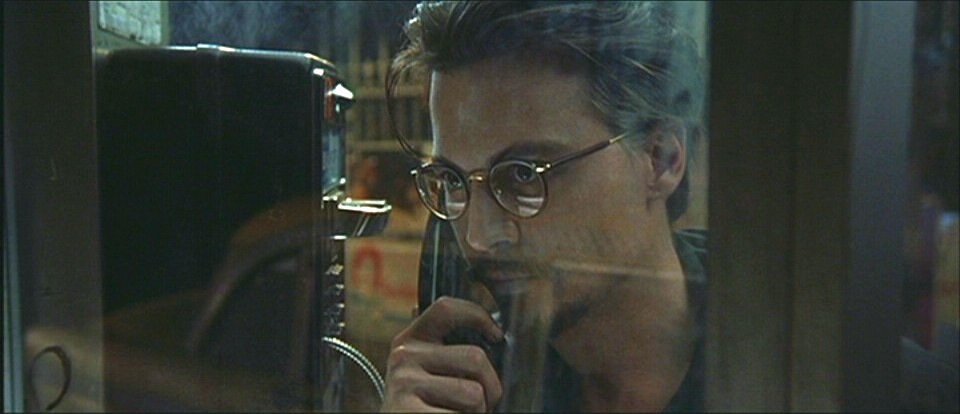
Critical and commercial reaction to Roman Polanski’s films has always been mixed at best. To say that they are an acquired taste is an understatement. The Ninth Gate (1999) is no exception. Despite what the film’s misleading trailer promoted at the time of its initial release, it is not a straight-forward supernatural thriller but rather showcases the auteur in a darkly humorous mood as he plays around with the conventions of the genre.
Dean Corso (Johnny Depp) is an unscrupulous book dealer whose motivation is purely for financial gain. He swindles a naïve couple from a set of rare and priceless books in an amusing scene that sets up his character beautifully. A very rich book collector by the name of Boris Balkan (Frank Langella) hires Corso to validate his recently purchased copy of The Nine Gates of the Kingdom of Shadows, one of only three copies that exist in the world. The book contains nine engravings which, when correctly deciphered and the interpretations properly spoken, are supposed to conjure the Devil. Balkan believes that only one book is authentic so he hires Corso to track down each copy and verify their authenticity. It seems like a simple enough task but as Corso soon finds out, someone does not want him to complete the job. He crosses paths with an odd assortment of characters, from a mysterious woman (Emmanuelle Seigner) who seems to help him in his quest, to another, more obviously evil woman, Laina Telfer (Lena Olin) intent on impeding his progress and quite possibly trying to kill him.
Polanski received the screenplay by Enrique Urbizu and was so taken by it that he read the book it was based on, El Club Dumas by Arturo Perez-Reverte. He liked the novel because, “I saw so many elements that seemed good for a movie. It was suspenseful, funny, and there were a great number of secondary characters that are tremendously cinematic.” The novel featured several intertwined plots and so Polanski decided to write his own draft with long-time screenwriting partner, John Brownjohn (they had collaborated previously on Tess, Pirates and Bitter Moon). Perez-Reverte’s book contains numerous literary references and a subplot concerning Corso’s investigation into an unpublished chapter of The Three Musketeers. Polanski and Brownjohn jettisoned these elements and focused on one particular plot line: Corso’s pursuit of the authentic copy of The Nine Gates. For Polanski, the story had “all the ingredients that I like. It’s a great dose of a certain kind of irony and humor, and a bit of the supernatural or metaphysical or whatever you call it. Suspense and a central character, which I found very appealing.”
Johnny Depp became attached to the project as early as 1997 when he met Polanski at the Cannes Film Festival promoting his directorial debut The Brave (1997) that was in competition. Initially, the veteran filmmaker did not think that Depp was right for the role of Corso because the character was 40-years-old. Polanski was thinking of casting an older actor but Depp was persistent and wanted to work with him. According to the director, Corso’s disheveled look was modeled after Raymond Chandler’s famous sleuth, Philip Marlowe and there is a hint of that rumpled cynical vibe that is the trademark of that character. Hints of friction between Depp and Polanski while working on the film surfaced in the press around the time of its North American release. The actor said, “It’s the director’s job to push, to provoke things out of an actor.” Polanski told one interviewer, “He [Depp] decided to play it rather flat which wasn’t how I envisioned it. And I didn’t tell him it wasn’t how I saw it.”
Polanski cast Frank Langella as Balkan after seeing him in Adrian Lyne’s version of Lolita (1997). The director liked how the actor could be “charming and disturbing at the same time.” Polanski cast Lena Olin as Liana Telfer because he needed “an actress who could give the impression that she’s an intellectual and, at the same time, a very sensuous woman capable of great bursts of violence.” Barbara Jefford was a last minute casting decision because the German actress originally chosen was struck with pneumonia and another actress could not learn the lines. Jefford came in with only a few days notice, learned her lines, and affected a German accent. Casting Jefford was a nice nod to her role in the Hammer Horror film, Lust for a Vampire (1971), where she played a countess who conducts a satanic ceremony to resurrect the body of her daughter.
Polanski admired the work of director of cinematography, Darius Khondji. “I love his lighting, because he knows how to make it both sophisticated and realistic. It keeps you on the fringe of fantasy so when you tip over into the supernatural, it doesn’t feel artificial at all,” he remarked in an interview. Khondji was also keen to work with the director. “I’ve always wanted to make a movie with a witchcraft or supernatural subtext – I love those kinds of stories. Roman is obviously one of the best directors in the world to work with in that genre.” Filming took place in France, Portugal and Spain during the summer of 1998.
While the film’s slow, deliberate pacing turned off many, there is a method to Polanski’s madness. The gradual pacing draws one into this engaging world. Perhaps it is the European setting but The Ninth Gate has an otherworldly atmosphere that is well done. The attention to detail and Khondji’s richly textured cinematography is exquisite and contributes to the overall mood of this vivid world. For example, the New York City scenes have a very 1940s vibe to them, utilizing brown and blacks with a warm gold glow from the street lamps. This is, in turn, contrasted with the green and red in the phone booth when Corso is trying to contact Balkan.
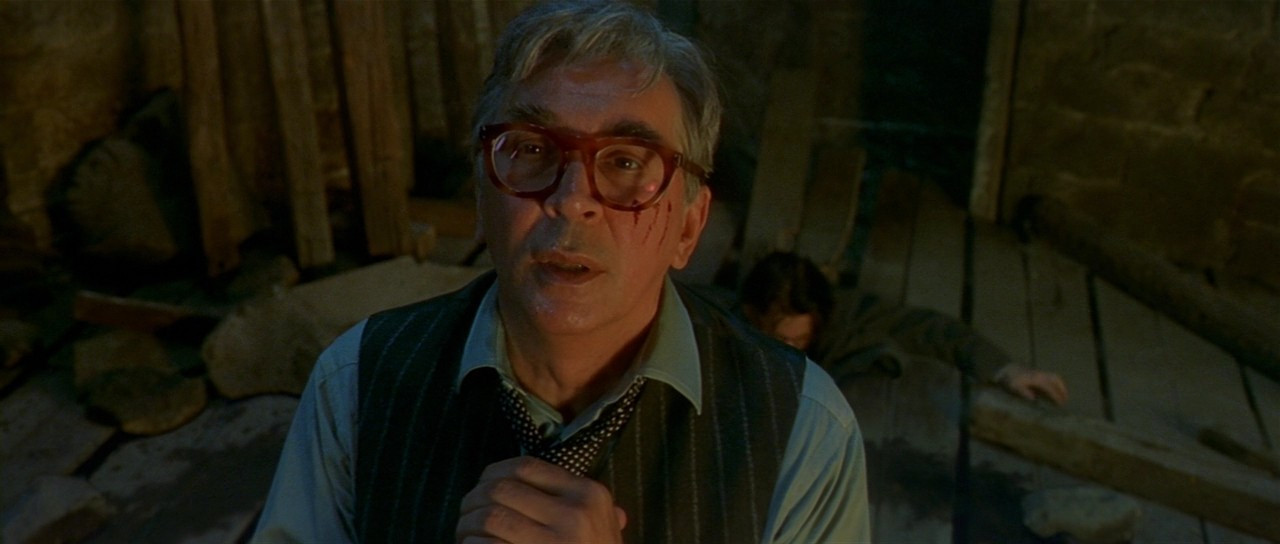 However, The Ninth Gate does not just have atmosphere going for it. Johnny Depp adds yet another intriguing character to his roster of unconventional roles. Corso is an unethical cheat who would do anything to make a buck. A rival describes him as a “vulture” and “unscrupulous” to which he freely admits to as he swindles four volumes of a rare edition of Don Quixote. He really does not care about others and yet, despite all of his reprehensible qualities, Depp’s natural charisma and charm make him kind of an endearing character that you care more about as he delves deeper into dangerous waters.
However, The Ninth Gate does not just have atmosphere going for it. Johnny Depp adds yet another intriguing character to his roster of unconventional roles. Corso is an unethical cheat who would do anything to make a buck. A rival describes him as a “vulture” and “unscrupulous” to which he freely admits to as he swindles four volumes of a rare edition of Don Quixote. He really does not care about others and yet, despite all of his reprehensible qualities, Depp’s natural charisma and charm make him kind of an endearing character that you care more about as he delves deeper into dangerous waters.
Balkan is a pompous windbag filled with self-importance but Frank Langella stops just short of being a cliched, moustache-twirling villain. He’s melodramatic and his presence is a nod to horror fans who recall his most famous role in Dracula (1979). Lena Olin’s dangerous Telfer widow evokes her femme fatale character from Romeo is Bleeding (1993). She smokes and even flashes a suggestive shot of her black garter-clad thighs in an attempt to seduce Corso and draw him into her web. She uses sex to get what she wants and when that fails she resorts to violence, attacking him in an animalistic frenzy.
Emmanuelle Seigner plays a mysterious woman who constantly shadows Corso and sometimes helps him out when gets in dangerous situations. Her motives do not become fully apparent until the end and even then it is open to interpretation. She helps him get inside the Fargas house and flies with him to France. Who or what is she? At one point, she literally glides down a flight of stairs and saves Corso from getting a beating at the hands of Telfer’s henchman.
This movie is ample with clues, a puzzle waiting to be solved. For example, in Balkan’s lecture at the beginning of the movie, he suggests that all witches are evil and in league with Satan. The irony is that Corso sleeps through this important clue to Balkan’s real intentions. There is also the odd, disregard for The Book of Shadows, a book worth an estimated $1 million. It is placed in constant peril and is even flicked with ash when the Ceniza brothers analyze it.
As for the cliché aspects of the film, one should be less concerned at anticipating plot twists and predictable elements in favor of simply enjoying the ride. Polanski probably was aware of this and decided to have fun with them. There is Balkan’s “666” password, Corso’s perchance for getting the crap kicked out of him, and the one-armed woman book dealer that all contribute to a playful mood that punctuates the film whenever it runs dangerously close to being too pretentious or self-important.
Polanski approached the subject matter with a certain amount of skepticism as he said in an interview, “I don’t believe in the occult. I don’t believe. Period.” He wanted to have fun with the genre. “There is a great number of clichés of this type in The Ninth Gate which I tried to turn around a bit. You can make them appear serious on the surface, but you cannot help but laugh at them.” For Polanski, the appeal of the film was that it featured “a mystery in which a book is the leading character” and its illustrations “are also essential clues.” The film has a playful tone but Polanski knows when to reign things in. As the horror is heightened so is the film’s dark comedy during the climactic moments. The screenplay is in perfect synchronicity with the direction.
For a film supposedly steeped in literature, the text, and by that I mean the story, is irrelevant. There are many clues scattered throughout the film that suggest this to be the case. One has to understand that among the characters there is a hierarchy. At the bottom level is the Frenchman that Corso meets early on. He owns one of The Nine Gates but is not all that interested in it except for the craftsmanship of its binding. Then, there is the Baroness who has spent her life writing about The Devil but never considered the meaning behind the images in her copy of The Nine Gates. And, if you take her word, she had the best clue because she claimed to see the Devil when she was a child. At the next level is Laina who is aware that the book has some power but is still focused on the words and not the images. Above her is Balkan who knows that the text is irrelevant and that the pictures are crucial but incorrectly thinks that the key to summoning the Devil lies in them.
The Ceniza brothers have the ability to tinker with the power of the pictures. They are allusive figures that seem whimsical when Corso first meets them and then are gone when he visits their now defunct store at the film’s end but thanks to the movers who are disassembling the store he gets the final piece of the puzzle. Corso starts off at the bottom because the value of books are neither in the text nor in the pictures but in their binding and availability. By the film’s end he realizes that the power is not in the pictures but the quest itself. There is the mysterious woman who resembles one of the figures in the engravings and actually provides the final clue for Corso to reach the end of the quest. The final layer is the viewer. That makes nine players and eight levels of consciousness created by Polanski.
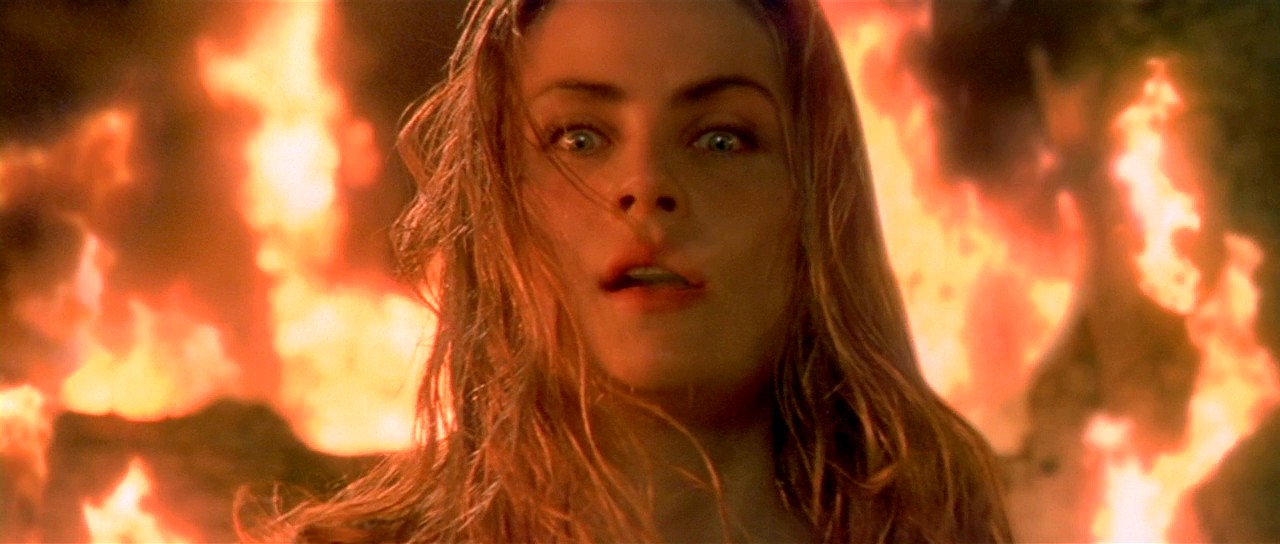 The Ninth Gate was a refreshing change from the trend of mundane Hollywood supernatural schlock at the time (i.e. The Bone Collector, Stigmata, End of Days, et al.) that took itself way too seriously and tried too hard. Unlike those films, The Ninth Gate never falls into that trap. It contains some truly vintage Polanski black humor that, alas, North American audiences and critics alike did not appreciate. They wanted meat and potatoes filmmaking that he has always resisted in favor of subversive thrills and following his own muse come hell or high water.
The Ninth Gate was a refreshing change from the trend of mundane Hollywood supernatural schlock at the time (i.e. The Bone Collector, Stigmata, End of Days, et al.) that took itself way too seriously and tried too hard. Unlike those films, The Ninth Gate never falls into that trap. It contains some truly vintage Polanski black humor that, alas, North American audiences and critics alike did not appreciate. They wanted meat and potatoes filmmaking that he has always resisted in favor of subversive thrills and following his own muse come hell or high water.
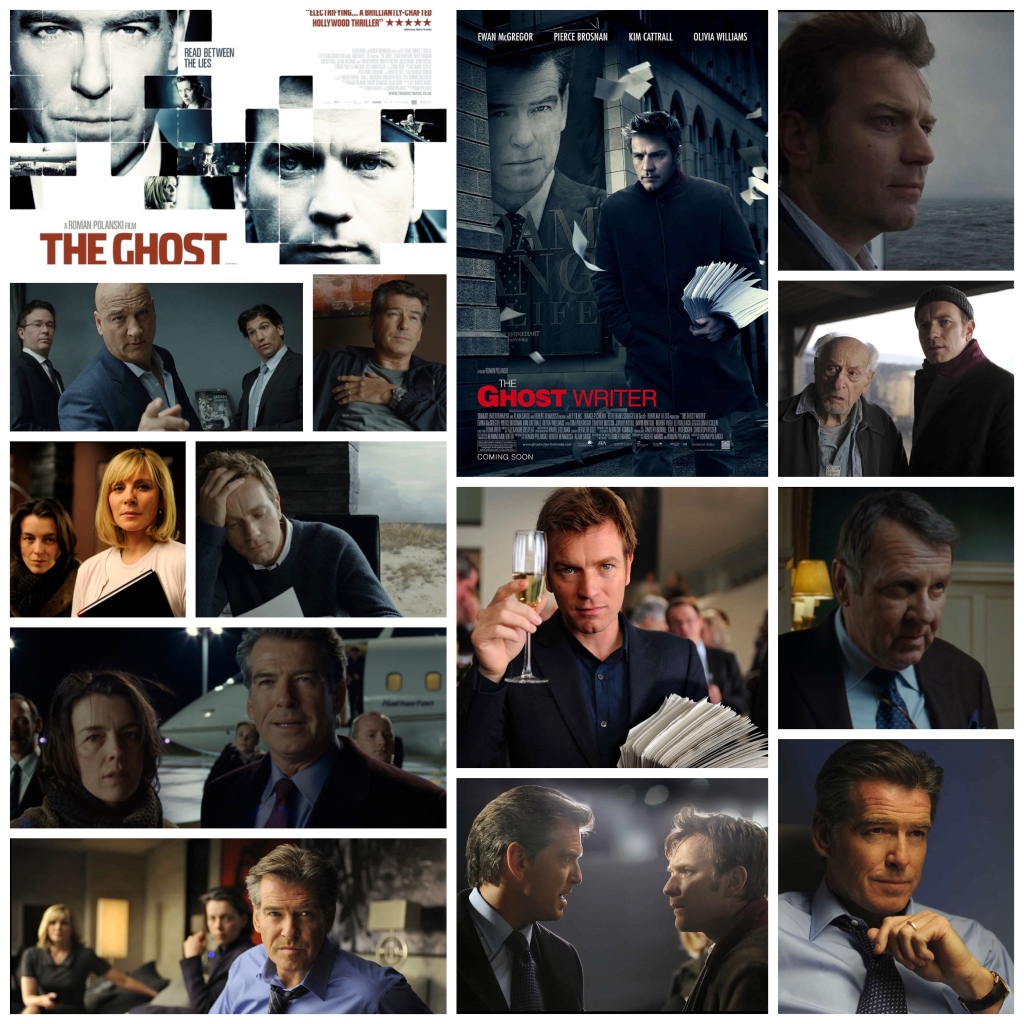

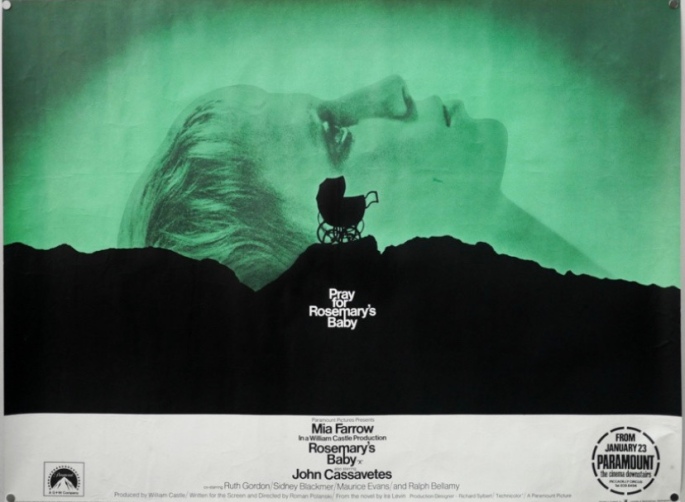
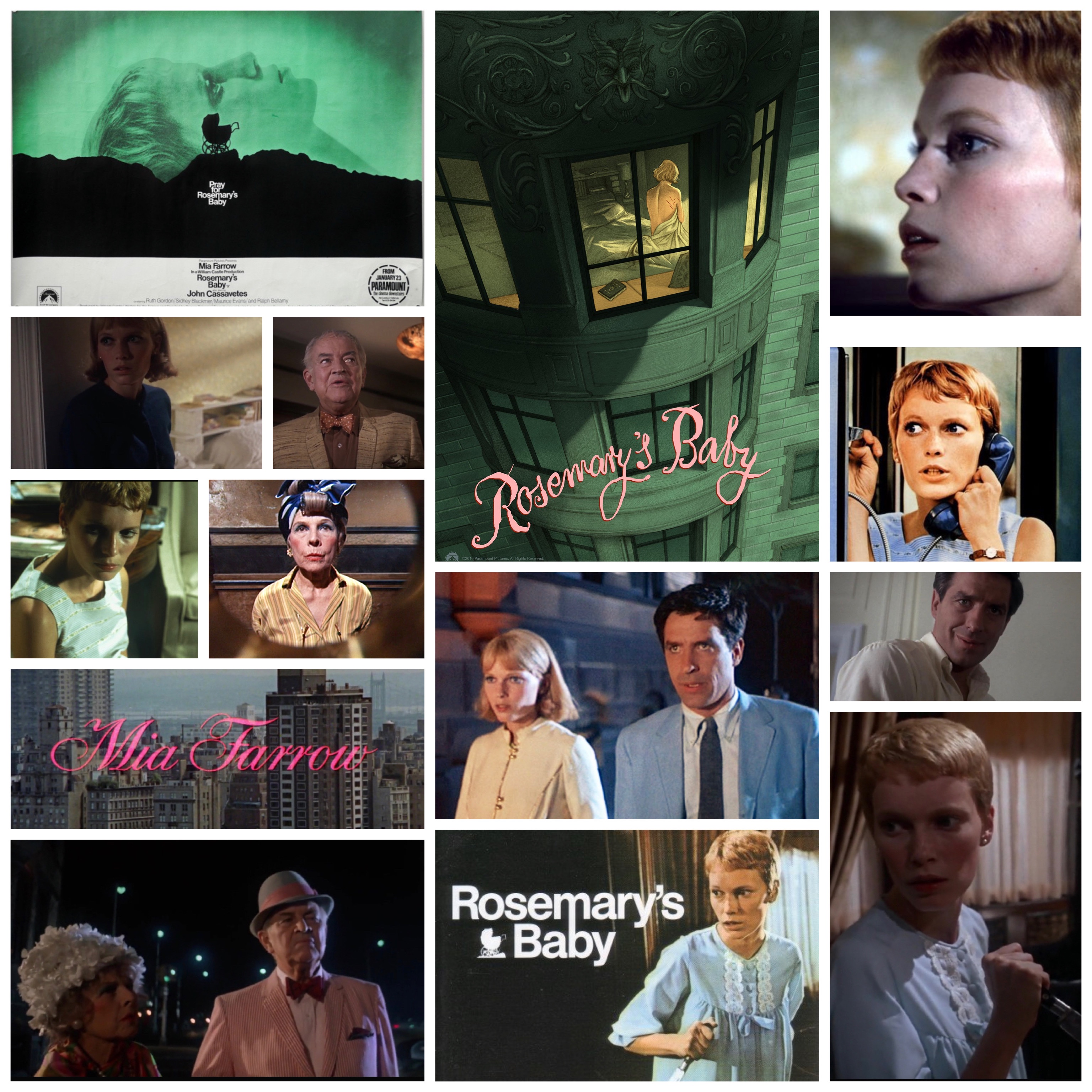
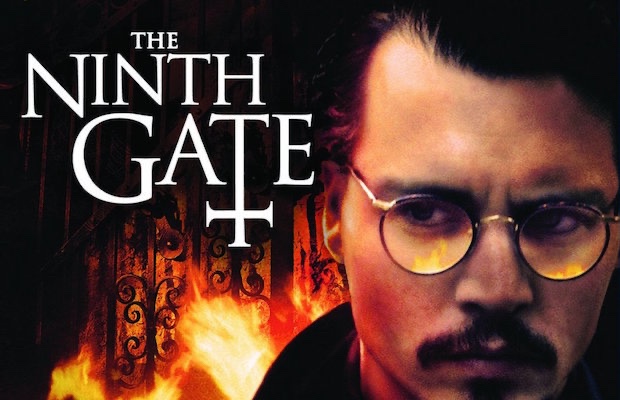
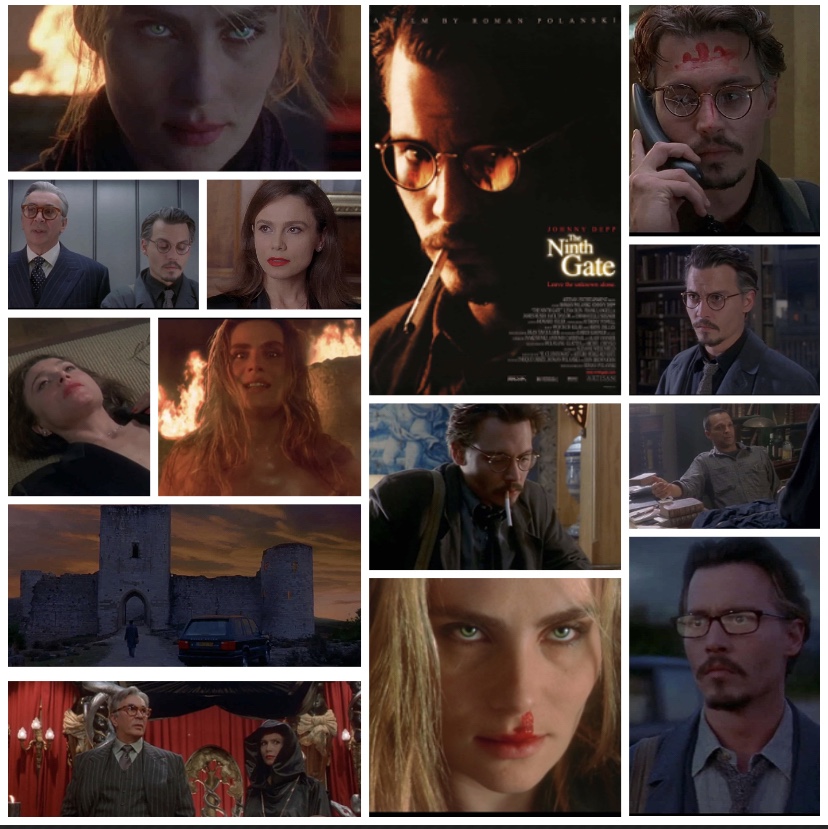
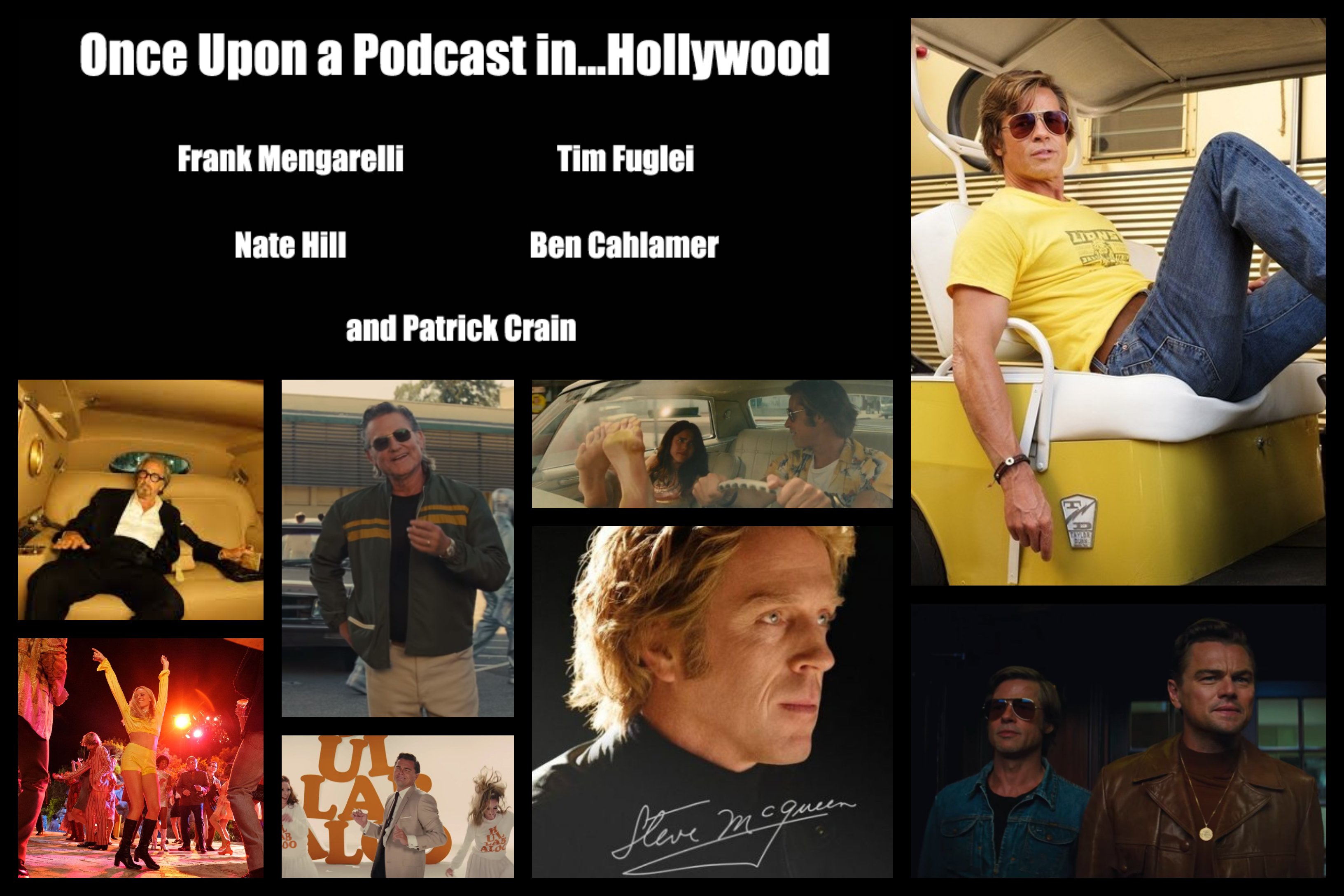

 However, The Ninth Gate does not just have atmosphere going for it. Johnny Depp adds yet another intriguing character to his roster of unconventional roles. Corso is an unethical cheat who would do anything to make a buck. A rival describes him as a “vulture” and “unscrupulous” to which he freely admits to as he swindles four volumes of a rare edition of Don Quixote. He really does not care about others and yet, despite all of his reprehensible qualities, Depp’s natural charisma and charm make him kind of an endearing character that you care more about as he delves deeper into dangerous waters.
However, The Ninth Gate does not just have atmosphere going for it. Johnny Depp adds yet another intriguing character to his roster of unconventional roles. Corso is an unethical cheat who would do anything to make a buck. A rival describes him as a “vulture” and “unscrupulous” to which he freely admits to as he swindles four volumes of a rare edition of Don Quixote. He really does not care about others and yet, despite all of his reprehensible qualities, Depp’s natural charisma and charm make him kind of an endearing character that you care more about as he delves deeper into dangerous waters. The Ninth Gate was a refreshing change from the trend of mundane Hollywood supernatural schlock at the time (i.e. The Bone Collector, Stigmata, End of Days, et al.) that took itself way too seriously and tried too hard. Unlike those films, The Ninth Gate never falls into that trap. It contains some truly vintage Polanski black humor that, alas, North American audiences and critics alike did not appreciate. They wanted meat and potatoes filmmaking that he has always resisted in favor of subversive thrills and following his own muse come hell or high water.
The Ninth Gate was a refreshing change from the trend of mundane Hollywood supernatural schlock at the time (i.e. The Bone Collector, Stigmata, End of Days, et al.) that took itself way too seriously and tried too hard. Unlike those films, The Ninth Gate never falls into that trap. It contains some truly vintage Polanski black humor that, alas, North American audiences and critics alike did not appreciate. They wanted meat and potatoes filmmaking that he has always resisted in favor of subversive thrills and following his own muse come hell or high water.